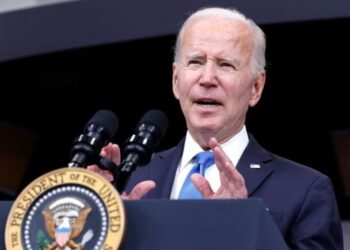Agencies_Gaza Post
Members of the International Energy Agency (IEA) decided to participate in the largest-ever release of US oil reserves.
After US President Joe Biden announced the release on Thursday, both Brent and US crude benchmarks fell over 13%, their worst weekly drops in two years.
Brent crude futures were down 32 cents, or 0.3 percent, to US$104.39 per barrel (about RM439.53).WTI crude futures in the United States declined $1.01, or 1%, to US$99.27.
Biden announced a six-month release of one million barrels per day (bpd) of crude oil, the largest release ever from the US Strategic Petroleum Reserve at 180 million barrels.
In their emergency meeting on Friday, IEA member countries were unable to agree on volumes or promises for each country, according to Hidechika Koizumi, director of Japan’s Ministry of Economy, Trade and Industry’s international affairs division.
He added that further information would be available “within the next week or so.”
OPEC+, which includes the Organization of Petroleum Exporting Countries and allies such as Russia, held to its plans for a 432,000 bpd increase to their May output target on Thursday, despite Western pressure to increase output even more.
“The upcoming deluge of US barrels does not change the fact that the market will struggle to find sufficient supply in the next months,” said PVM analyst Stephen Brennock.
“The US release pales in comparison to forecasts of three million barrels per day (bpd) of Russian oil being shut in as sanctions bite and purchasers refuse to buy.”
Shanghai, China’s business powerhouse, came to a halt on Friday when the government ordered the evacuation of most of the city’s 26 million citizens in order to stop the spread of Covid-19.
JPMorgan stated in a note that its price predictions for the second quarter and the second half of this year remained unchanged at US$114 a barrel for the second quarter and US$101 a barrel for the second half of this year.























